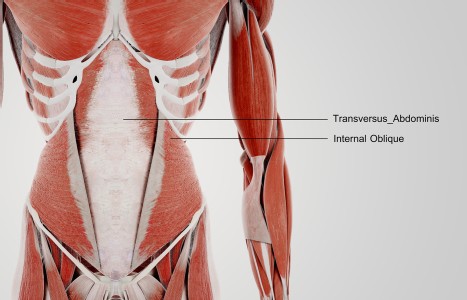TrA-2, my primary needle location, I needle 95% of the time and I think it works the best. You’ll know you have the right point location when you discover the muscle twitching when applying electric stimulation.
Emperor's College: Celebrating 20 Years of Leadership
Emperor's College of Traditional Oriental Medicine is celebrating its 20th anniversary this year. Founded in 1983 by Dr. Bong Dal Kim, OMD, LAc, one of California's first acupuncturists, Emperor's is helping to lead the field with clinical partnerships and many accomplished alumni. During the past few years, Emperor's College has added some of the most progressive clinical externships available to any student, alumna or acupuncturist. Its graduates and staff continue to develop the field though leading roles and actions at educational, professional, medical and regulatory institutions.
Acupuncture Today met recently in Santa Monica with David Solin Lee, Emperor's chief executive officer, and Liz Hoffmann, the school's director of institutional communications, to discuss the past 20 years, the current challenges facing the college, and their vision for the future.
Acupuncture Today (AT): Good morning. Tell us about the founding of the school.
David Solin Lee (DSL): Dr. Kim founded the school in 1983, with a vision of a place where people could learn to become superior doctors through learning about both the medicine and about themselves. His discussions are all about the energy of the school, and what light he sees in the environment. He speaks of seeing the light of Emperor's College shine globally for generations and always stresses that we keep our choices and intention toward that vision. That is one of the things that makes Emperor's very different [from other schools]. Our philosophy is that in studying this medicine, ultimately, all you're really doing is studying people and studying yourself.
Liz Hoffmann (LH): He continually stresses that self-knowledge comes from keeping your heart open through meditation, through being clear with who you are, and through being consistently kind to yourself and the people around you.
DSL: Whenever I bring problems or issues to him, his answer is, "Just meditate on it. See what meditation gives you." He has a view of enlightenment that I found incredibly accessible. He says, "Enlightenment is: Just be completely relaxed, and be completely yourself, around everyone, in any condition."
AT: What types of opportunities do the students have to get to know each other?
LH: Twice a year, we go up to Big Bear Mountain, where the students can participate in a self-challenging ropes course. They climb 30-foot trees and are dependent upon each other for safety. If you think you communicate well on the ground, when you are up 30 feet high, you really come to understand just how well you do or do not communicate! You understand how important it is to listen to what's going on around you, to listen to what other people are saying, to pay close attention and be in the moment. Your awareness is increased tremendously when you realize that your life may be in danger - and this awareness remains once you are safely back on the ground. The students really get to know each other, and a strong camaraderie develops that continues on for months and years to come.
AT: There's a message on Emperor's Web site that says the school's mission is "to prepare brilliant practitioners, teachers and leaders for a path of right livelihood." The Web site also mentions some of the partnerships Emperor's has with other organizations. Could you expand on these partnerships?
DSL: We are particulary excited about our clincial partnerships with Cri-Help, LA Free Clinic and UCLA . We also have an externship at the LA Free Clinic, which was one of the first health clinics in the country. We are able to do both acupuncture and herbs there because of a $240,000 grant from California Endowment and the extraordinary generosity of John Chen and Lotus Herbs. They have donated all the herbal formulas for several years to the low-income patients, and they help with the research we're doing there.
LH: Cri-Help is a large drug recovery center in North Hollywood. The supervisor there, Shelly Bobbins is a graduate of Emperor's.
DSL: We are also starting our third year at UCLA in the Arthur Ashe Student Health and Wellness Center on campus. We send three to four interns three times a week to treat their patient population. These are all Western medical settings, and the students explain what they're doing in Chinese medicine in Western medical terms. That's really phenomenal. It makes them very well-prepared for practice after graduation.
AT: A few years ago, AT ran a story on Emperor's and a study on stroke research with USC and Daniel Freeman Memorial Hospital. How's that going?
DSL: The researchers at USC are now finishing their analysis of the data. The Center for Health Wellness and Education funded the entire research and enabled us to pay our graduates to provide treatment, which was especially gratifying.
AT: Does the school keep in touch with graduates much?
DSL: A college should really be judged by how its graduates are affecting their world. Our alumni have taken strong roles in leading growth for the professional groups and at other TCM colleges. For example, our academic dean, Will Morris, was also one of our first graduates. He's also on the board of directors and the executive committee at AAOM.
Steve Given is the clinic department coordinator at Bastyr University, and was the dean of clinical education at Yo San University. He is also on the executive committee of the Council of Colleges of Acupuncture and Oriental Medicine. Zev Rosenberg is chair of the herbal department at Pacific College in San Diego. Bruce Baptice is academic dean at China International Medical University. Cormac Fergunon is the clinic director at Samra. Kathryn White was academic dean at Samra and is now president at American University of Complementary Medicine. Jung Min Kim was the past chair of the California Acupuncture Board. And Neal Miller has been one of the key legislative activists in California.
Many of our graduates - Doug Eisenstark; Yvonne Farrell; Merle Morgan Drennen; Jan Rutiz; Amir Zagross; Cyndee Overland; David Twicken; Celia Dermont; and Denise Nuemark-Riemer - are professors and clinic supervisors at Yo San, Samra, South Baylo, Pacific or other colleges as well as Emperor's.
LH: We see leadership by our graduates in medical settings also. Evan Ross is now on staff in the department of medicine at Cedars-Sinai Medical Center and is one of the first non-MD acupuncturists to be granted inpatient treating privileges. Victoria Blake helped create integrative programs at St. Vincent's Medical Center. Kathy Wanderer was the clinical coordinator of integrative therapies for the cardiothoracic surgery department at Cedars-Sinai. Elan Migdali founded AcuCare, the first nationwide acupuncture network. And the creator of www.acupuncture.com, Al Stone, is a graduate of Emperor's.
AT: What are your biggest concerns for the future?
DSL: There's always an issue of what direction the field is going, whether it's moving toward doctorate by licensure in California, or how we proceed with an accredited doctoral degree.
If we can look at the field in human terms, we are about 20 years old. As a 20-year-old, we are still trying to understand and decide who we are and how we create our place in the world. We all are striving for the right livelihood and meaningful relationships, and the doctoral is the next level of growth. The clinical opportunities we are creating for licensed acupuncturists who are doctoral candidates are even more powerful than what we're able to create for our master's students. We've certainly gone through growing pains and challenges, but right now, it is very exciting for us to make our own path.
Editor's note: Part two of Acupuncture Today's interview with Liz Hoffmann and David Solin Lee will appear in the June issue.


